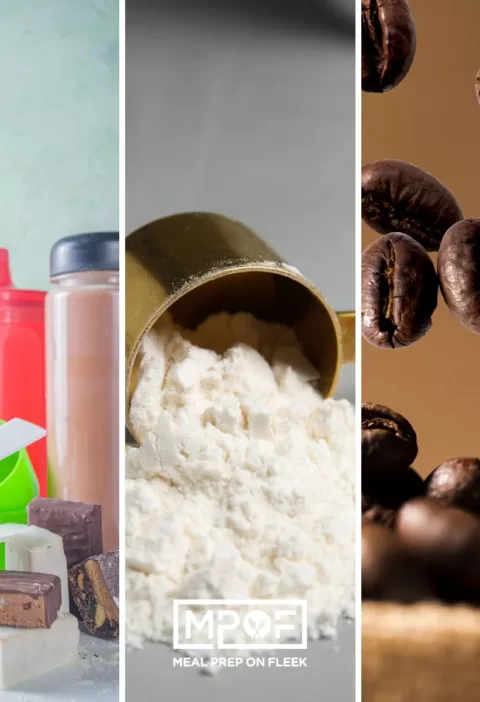5 Tips to Help You Restore and Maintain Your Gut Health
Hey girl! Your microbiome is looking pretty fine today. Wanna go grab some kombucha?
The gut is like a playground for all sorts bacteria. This bacteria, also called microbes, flourish in the digestive tract. That sounds scary, but it is actually a good thing as long as the majority is good bacteria and not bad bacteria. Gut health has so much to do with your overall health, that it is wise to learn some of the best ways to optimize the health of this deceitfully important organ. Many doctors now believe that the bacterial balance of the gut has a greater impact than previously believed on many diseases; from irritable bowel syndrome to cancer.
We wanted to hear what the experts said, so we have asked some of the leading dietitians for their thoughts are on the importance of gut wellness to overall health and what kinds of foods will best to improve gut health.
Here are there best tips for improving gut health:
Carolina A. Martinez, MS, RDN, LD: “The gut microbiota plays important roles such as metabolizing nutrients from food and medications, protecting against intestinal infections, and producing vitamin K. Scientists are still learning about many of its other functions, which may include preventing or treating health conditions such as heart disease, arthritis, and cancer. Therefore, it is important you keep your gut healthy. To do so, you can consume natural prebiotics and probiotics.
Prebiotics are natural food components that are not digestible. Probiotics are live bacteria and yeasts, often called “good” bacteria because they help keep the gut healthy. Prebiotics feed probiotics – so the two go hand in hand. To get prebiotics, eat fruits, vegetables and whole grains such as bananas, onions, garlic, leeks, asparagus, artichokes, soybeans and whole-wheat foods. Probiotics can be found in both fermented dairy and non-dairy foods like yogurt, kefir, aged cheeses, kimchi, sauerkraut, and tempeh. Following a well-balanced diet and consuming a variety of foods will ensure you make the most out of the natural prebiotics and probiotics in food.” -Carolina A. Martinez, Nutrition expert can be found at https://www.vamos-nutrition.com/
Frances Largeman-Roth, RDN: “Gut health is inextricably linked to our overall health, so it’s something we all need to pay attention to. In addition to eating plenty of fresh fruits and veggies (many of which are a source of prebiotics), it’s also important to get probiotics in your daily diet. You can get them by eating yogurt, cottage cheese and other dairy products with live bacteria, or by eating fermented foods, such as sauerkraut and kimchi.”
What you might have heard in literature related to the digestive tract, is that increasing fiber is of utmost importance to keep your digestive system running smoothly. This may or may not be true for you because gut health is a very personalized matter. Some of your digestive profile will be due to genetics, while others parts will due to lifestyle choices you made earlier in life. Below are some tips from our dietitian friends on the role that fiber might play for you.
– Frances Largeman-Roth, RDN, nutrition expert and author of Eating in Color. ”
Related Article - 10+ Benefits of Fermented Foods and How to Eat Them
Allison Kuhn: “Gut health is one of the most interesting nutrition spheres today. The thing about gut health is that its highly individualized. One of the biggest pieces of advice that you hear is to eat more fiber. Which is totally true, but if you have certain types of intolerances, ranging from celiac disease to IBS/FODMAP intolerance, just going after general fiber can actually cause quite a few issues. For example, someone who has trouble digesting FODMAPs (short-chain carbohydrates) starts eating an extra apple a day, and feels even worse, because they are eating a high-fructose food, which is a carb they can’t digest. If you’re a person who rarely experiences digestive symptoms, you are probably fine to seek fiber in the general sense. If not, it’s important to get testing to rule out any other conditions. Then, you can customize the types of fiber you’re consuming to reap the rewards without the symptoms.” - Director of Nutrition for Kroger Co. and also on Instagram @hangryrd
Get some IBS | FODMAPS recipes here
Stephanie Edson, MS, RDN, LD, LMNT: “If trying to improve gut health, start by eating more veggies and fruit! Veggies and fruit are sources of fiber which will positively impact the gut. Be sure to slowly increase fiber intake, eating one more serving of veggies and fruit every few days until consuming a fruit and/or veggie at all meals and snacks. I have worked with quite a few individuals who felt better just eating more veggies and fruit than when they were taking supplements for gut health!”
It’s not all just what you eat; staying hydrated is insanely important too. Our dietitian friend below gives some guidelines to avoid the dehydration mistake.
- Stephanie Edson, MS, RDN, LD, LMNT is Regional Wellness Specialist and Registered Dietitian with SpartanNash and can be reached at stephanie.edson @ (spartannash.com). Follow her on Twitter @HometownRDN
Related article - Guide to Gut Health - Symptoms, Affects, Solutions
Jim White: ”Hydration. People want to talk about probiotics and getting more fiber, but neither of those do much for your gut health if you’re dehydrated. Those are still important parts of gut health, so they shouldn’t be overlooked, but dehydration keeps fiber from doing its job properly and can lead to that fiber causing constipation. Dehydration impairs bowel regularity, increases hunger (promoting overeating), causes sleepiness and lack of energy, and impairs cognition. By being properly hydrated, you’re setting yourself up to make good food choices (like eating fruits and vegetables that provide fiber) and exercise which plays a big role in gut health and regularity. The general rule of thumb is that you should drink half of your body weight in oz of water per day.
So, if you weigh 150 pounds, you should be drinking about 75 oz of water per day. If you exercise and sweat a lot, this goes up. An easy gauge of hydration status is the color of your pee. Your pee shouldn’t be darker than the color of lemonade, but you also don’t want it to be clear (this means you’re overhydrated). If your pee is clear, lay off the water for a bit until it resumes a slightly yellow color. If your pee is darker than lemonade, increase your water consumption until it’s a light yellow. If you take a B complex vitamin, urine color may not be a good gauge of hydration status as these supplements can affect urine color.” – Jim White Fitness and Nutrition Expert
Related Article - Meet Carley Smith - Certified GAPS Practitioner
We hope that you have found this helpful. The truth is that the gut resides in the very core of our bodies and connected to many vital organs. Poor digestive health can wreak havoc on the immune system and cause unwanted inflammation in the body. It is important to have the right bacterial balance to keep a strong immune system and eliminate waste (toxins) well. A healthy gut will work well to metabolize nutrients that are essential for you.
By following good digestive practices, you will be ahead of the game because many experts are predicting that we will be hearing much more about restoring the integrity of the gut as therapy for all kinds of diseases in the next 5-10 years.
[blog_subscription_form]







Thank you for providing this article for the benefits of other readers here like me. I am a health-conscious person, so whenever I found an interesting article, I try to follow their suggestion as long as it's all-natural, and can't harm my health. I eat food with rich in Prebiotic and probiotic they are a reliable combination in promoting our overall health and digestive system/gut. Apart from the food that we eat, Pre-probiotics supplements can support to sustain our health.